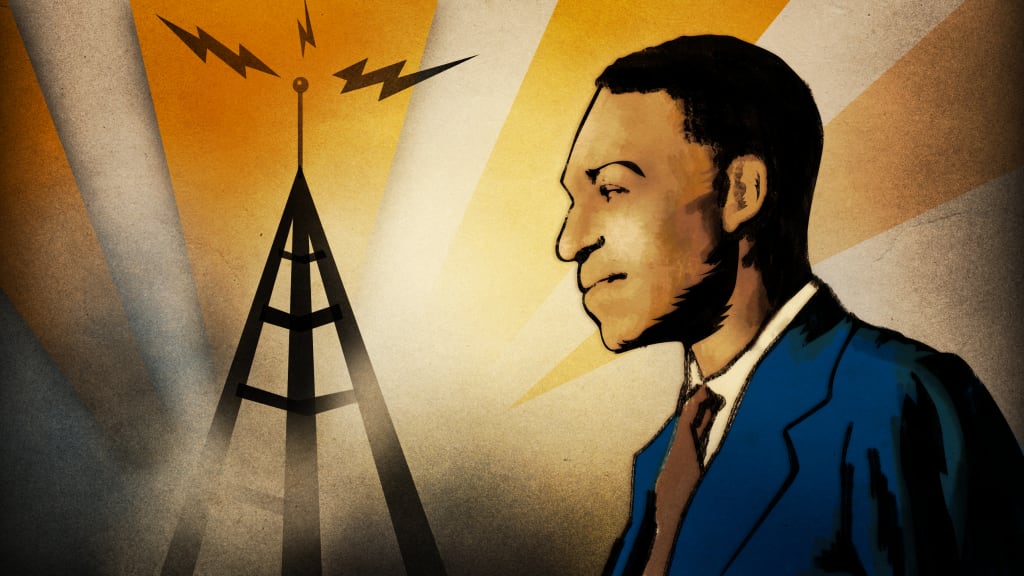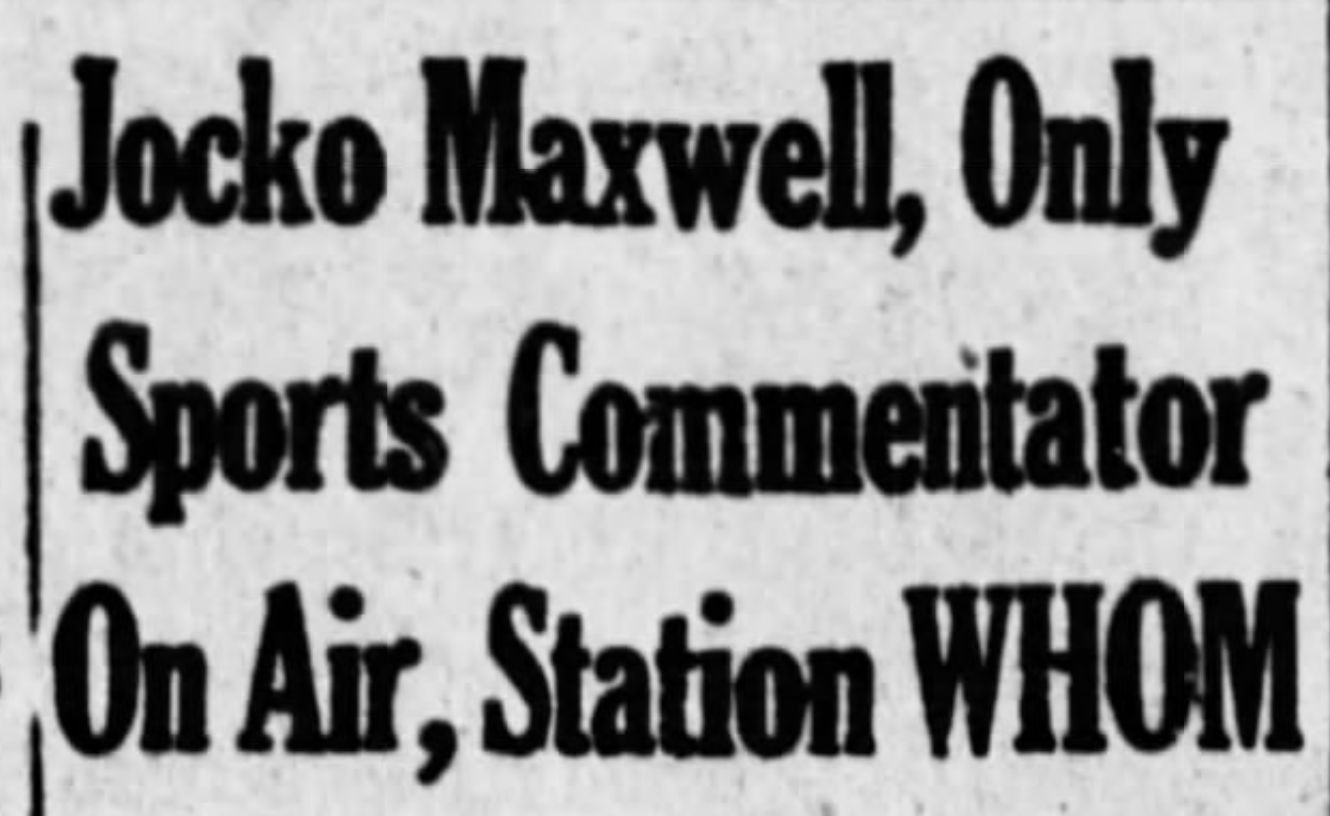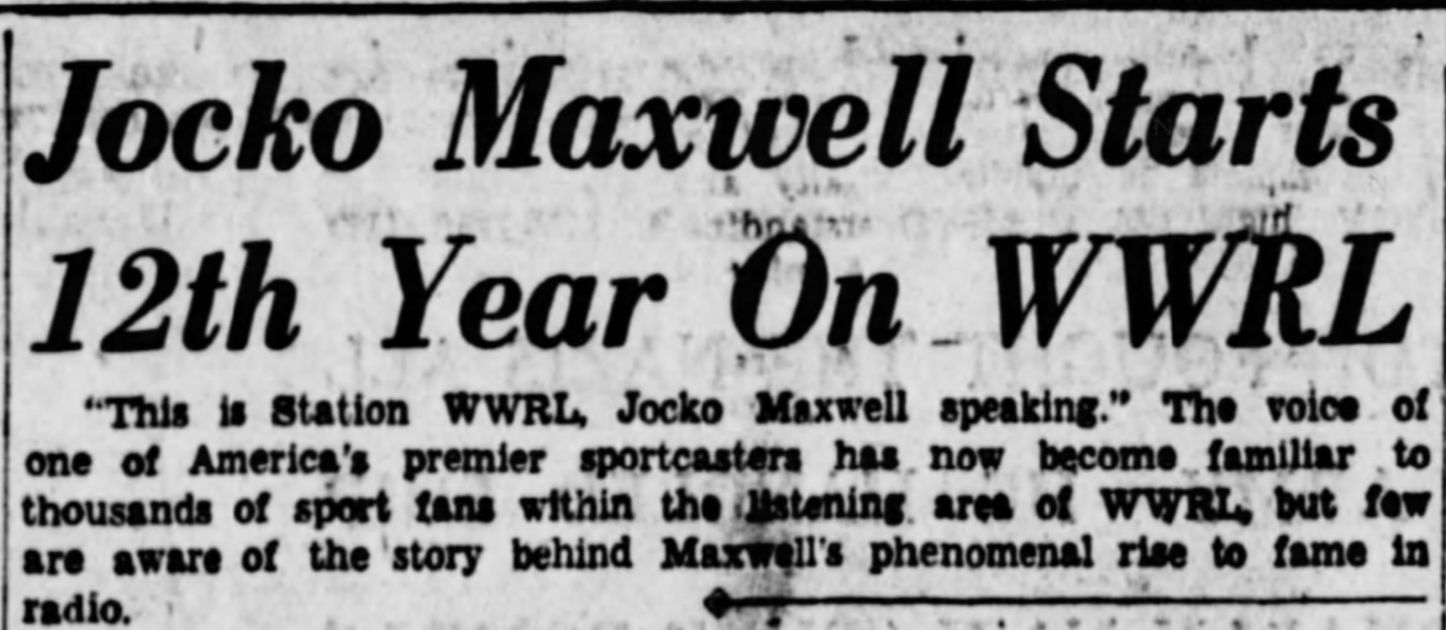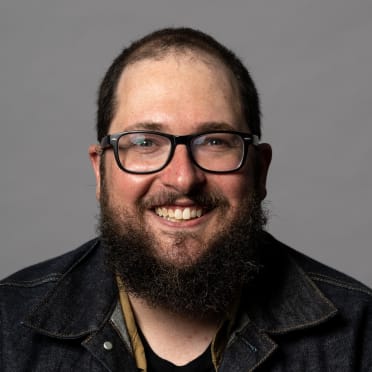
Millions heard his broadcasts -- in five-, 10- and 15-minute chunks -- all over the New York and New Jersey region each week for over 30 years. Sportswriters like the New York Daily News' Jimmy Powers respected him and Tigers commentator Ernie Harwell called him a friend. Without his radio broadcasts, the stories of the Negro Leagues and some of its finest players could have been lost to history. And yet, for anyone without a media studies degree and an obsessive knowledge of sports or broadcast history, his own story has largely been forgotten.
His name was Sherman "Jocko" Maxwell, and he was the first Black sportscaster in radio history.
---
Born Dec. 18, 1907, in Newark, N.J. -- where he would later become the public address announcer for the Newark Eagles -- Maxwell was a lifelong sports fiend. He was known to read up to eight newspapers a day and check in on what news was being reported across the radio band. But nobody did what he was doing when he first began his broadcasts in 1930 (some reports say 1929) for WNJ in Newark following multiple auditions for the spot.
"This was the first African-American sports broadcaster on radio," Donna Halper, a professor at Lesley University, SABR researcher, and the first woman to ever host a broadcast at Northeastern University, said in a recent phone call. "He's the first -- and I love firsts, I'm a media historian -- but given all the things that Jocko Maxwell achieved, what does he have to do to get into Cooperstown?"

It started out as five-minute segments, giving the scores and updates of the day. Soon it grew to 10 minutes, then 15. He went from WNJ to WHOM, he held call-in broadcasts on Brooklyn's WLTH, and eventually went to WWRL, where he would be named its sports director in 1942. His shows aired multiple times a week on multiple stations across the dial.
Far more than simply reading out the scores of the day, Maxwell was known for his devotion to the Negro Leagues -- giving them time on stations that would never usually pay any attention to them.
"Jocko was on his own mission,” sportswriter Jerry Izenberg wrote in The Star-Ledger after Maxwell's passing in 2008. “He let the world know what was going on in places like Ruppert Stadium and Forbes Field and Comiskey Park when the ‘other’ teams (which meant Blacks) took over from the regular tenants. And in his way, he made the part of America that would listen know all about these Black knights of the open road.”
"The first Negro Leagues baseball game was broadcast on radio on Aug. 7, 1942," Halper said. "So, if you wanted to know about the Negro Leagues before then, you depended on the sports writers, of which there were many wonderful writers working for the Black press, like Sam Lacy or Russ Cowans. But there was nothing on radio except Jocko Maxwell. And without Jocko Maxwell, we would have no idea what some of these folks who played in the Negro League sounded like, we would have no idea about the Negro Leagues themselves, because he was a repository of information."
He was a one-man army devoted to keeping the scores and stats of the Negro Leagues and sharing its stories with as many people as possible. Bob Kendrick, President of the Negro Leagues Baseball Museum, told the New York Times that without Maxwell's work, many records from the leagues would be lost.
“He was a significant figure in Negro Leagues baseball,” Kendrick said.
While Maxwell helped spread the word of the Negro Leagues to listeners across the tri-state area, he was also notable for the number of white athletes who would come on his show at a time when that was fairly remarkable. Hank Greenberg, Joe Medwick, Bob Shawkey and Mule Haas are just some of the ballplayers who gave time to Maxwell when they passed through the area.
"The biggest athletic celebrities have had the pleasure of being interviewed by Jocko Maxwell," the New York Age wrote in 1934, "and each and every one has rated him a second Ted Husing -- pushed into the background due to a dark complexion."
"Given the era of segregation that we were living in, this says to me that he had a lot of credibility," Halper said. "Even back then, with radio being kind of still a novelty, a lot of players didn't go on every single show. Most of them pretty much saved their time for the network programs."

Despite the hours of work he produced and the enthusiasm from his listeners and colleagues, Jocko was never paid for his radio appearances save for the times when an advertising sponsor handed him a paycheck. Instead, he kept his job as a postal clerk for his entire working life, squeezing in his sports broadcasts every evening -- something he even did after being named the sports director of an entire station.
"There was no money involved,” Maxwell said. “No salary ever in any sports. Never asked. They never gave me any.”
Somehow, in a career that spanned over 30 years before he retired in 1967, he was never on any formal payroll.
"Now, he said later that he never asked for [a salary]," Halper said. "But on the other hand, nobody offered because of racism -- I'll say it, yeah, it was because of racism. A lot of the white owners just assumed that these were not professionals and they didn't need a salary. I suggest to you that they wouldn't have done that for the vast majority of the white announcers."
He did everything he could to help promote the stories and players from the game -- he wrote the books "Thrills and Spills in Sports" in 1938 and "Great Black Athletes" in 1970. He added that to the mountain of freelance writing he did for area newspapers. There was his PA announcing work for the Eagles, and he even ran his own semi-pro baseball team, the Newark Starlings.
While this trailblazer of sports broadcasting has been inducted into the Garden State Association of Black Journalists and the Newark Athletic Hall of Fame, his likeness has yet to appear within baseball's most hallowed halls. In fact, he didn't even visit the Hall of Fame in Cooperstown, N.Y., until 2001 when he was 93 years old.
"I've gotten the runaround innumerable times simply because of my race," Maxwell once wrote. "It has been a tough road."
"This is a guy who never complained," Halper said. "So, I'm complaining for him, may he rest in peace: Put this man in the Hall of Fame. Let future generations know what he did, how well he did it. How he was such a repository of Negro Leagues history, how good he was on the radio, how widely praised he was."
